~ September 24, 2025
Over the years I’ve had the privilege and opportunity to travel to Washington, D.C. We’ve taken a few family trips to the Capitol, and this was my third time lobbying on the Hill. Each time I go, I’m reminded of why I love (and sometimes hate) politics. Through all of the partisan noise, there’s something to be said about participating in the American experiment first-hand, and I don’t take it for granted that I’ve been able to experience the democratic process.
In a time of increasing political and social division, we have choices to make: how and why are we going to use our voices? The AmericanHort Impact Washington Fly-In Summit was an opportunity for us to use our voice in a constructive and productive way, coming together with over 140 other participants from around the country to attend over 220 meetings with our lawmakers and their staff on Capitol Hill. Illinois had the largest turnout with almost 20 people in attendance ranging from small family farms like ours, to large companies whose business spans across the country and globe. Most of the Illinois attendees were also Landscape Illinois members, which was great to see, and we had many discussions about how we can take the advocacy back home to Springfield and our state industry. I look forward to continuing those conversations!
Becky and I arrived at D.C. the day before the Summit began and had time to walk around and explore the different memorials and public gardens. Garden-hopping our way down the National Mall, we made our way to the MLK Jr. and FDR memorials. These two memorials struck a chord with us; in a time of political unrest and purposeful division, we can look to steadfast leaders in our nation’s history for guidance. Some quotes that resonated with us were,
“Men and nature must work hand in hand. The throwing out of balance of the resources of nature throws out of balance also the lives of men.” – FDR
“We shall overcome because the arc or the moral universe is long but it bends towards justice.” – MLK Jr.
After spending time reflecting at these memorials, we felt a sense of renewal heading into the next few jam-packed days of briefings, meetings, and advocacy.
Tuesday on the Hill
Our first full day started off with issue briefings as a group – why were we here, what were we asking for, and who would we meet with? We’ll attach the AmericanHort leave-behind literature to this blog if you’re interested in doing a deeper dive into the topics, but there were 5 priority asks of our lawmakers that we also summarized in our own Spring Grove Nursery leave-behind that I’ll share here:
- Labor & Workforce: Support sensible H2A and H2B reforms that expand access, contain costs, and allow experienced agricultural workers to continue contributing legally. Leave_Behind_Workforce_2025
- Farm Bill Reauthorization: Pass a strong Farm Bill with robust funding for Horticulture, Research, Rural Development, and Crop Insurance programs that keep farms like ours viable. Leave_Behind_Farm_Bill_2025
- Research & Development: Continued support for USDA programs that help us grow healthier, stronger trees such as the Specialty Crop Block Program and the Horticultural Research Institute. Leave_Behind_Research_2025
- Tariff Relief: Tariff exemptions for Horticultural products that simply cannot be made or produced in the United States. Leave_Behind_Supply_Chain_20
- Trade & Transportation: Invest in infrastructure and workforce development for trucking, rail, ports, and waterways to move products efficiently and affordably. Leave_Behind_Supply_Chain_20
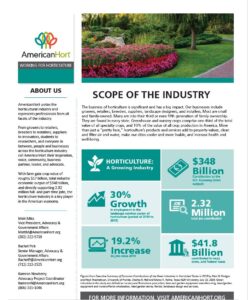 Experts from these industry segments spoke more in-depth about what they were working on and key developments coming up for Congress to vote on. We heard from Alison Slagell, the Sr. Policy Advisor for Secretary of Agriculture Brooke Rollins, where she did a Q&A for us. I had the chance to ask her for an update about funding for the Farm Labor Stabilization Pilot Program grant our farm received last year but has not yet received. She explained that the USDA and FSA are understaffed for the amount of workload they have and are working hard to sift through the grants, but that funding is not frozen and to sit tight while they work through this. Hopefully, that’s the case–we will keep waiting and see!
Experts from these industry segments spoke more in-depth about what they were working on and key developments coming up for Congress to vote on. We heard from Alison Slagell, the Sr. Policy Advisor for Secretary of Agriculture Brooke Rollins, where she did a Q&A for us. I had the chance to ask her for an update about funding for the Farm Labor Stabilization Pilot Program grant our farm received last year but has not yet received. She explained that the USDA and FSA are understaffed for the amount of workload they have and are working hard to sift through the grants, but that funding is not frozen and to sit tight while they work through this. Hopefully, that’s the case–we will keep waiting and see!
Later that morning we also heard from the Secretary of Labor Lori Chavez-DeRemer. Secretary Chavez-DeRemer spoke about the Department of Labor’s policy initiatives regarding her primary focus on workforce development and apprenticeship across industries. She reiterated the importance of agriculture, horticulture, and our industry and seemed genuine in her enthusiasm to get things done.
After our morning briefings, we made our way to our afternoon meetings. The Illinois contingent had to split up into two groups since we had so many people, so we divided up for our Representatives and came together for our Senators. Prior to our meetings, we decided who was going to speak about each topic, and Becky took the lead on the Farm Bill.
Our first meeting was with the office of Senator Duckworth (D), where we had a productive conversation with one of her staffers. Becky shared about the importance of bipartisanly passing a Farm Bill and the issues that affect specialty crops, such as crop insurance, research initiatives, and grant funding. She explained that specialty crops are not accurately defined in the Farm Bill and only make up 1% of funding allocation, when in reality specialty crops make up 15% of agricultural revenue. We are not asking for a complete overhaul of funding priorities, but simply a more accurate piece of the pie. Senator Duckworth’s office was receptive to our meeting and agreed with all of our “asks.” We appreciated the discussion and points of education we were able to share with her office, particularly about specialty crops and clearly defining them in the new Farm Bill.
After Senator Duckworth, we booked it in the rain across the Capitol over to the House buildings to meet with Congressman Bost (R-IL 12). We started our meeting by introducing our group and he took it from there. For about 15 minutes straight Rep. Bost went on a deep dive into China, communism, and a bunch of other topics that were not related to why we were there. Because we were supposed to be meeting back over on the Senate side with Senator Durbin’s office shortly, Becky and I and a few others volunteered to break off and brace the rain while the rest of the group stayed back to finish out the meeting. I’m told that the remainder of the meeting was positive, and I hope he was receptive to our concerns.
We arrived at the office of Senator Durbin (D) just in time for our last meeting of the day, soaking wet from running across the Hill in the thunderstorms. Senator Durbin’s staffer was open and receptive to our group and we had great conversations about our policy asks. Senator Durbin sits on the Senate Agriculture, Nutrition, and Forestry committee as well as the Senate Judiciary and Appropriation committees and is the Senate Minority Whip. We had a productive meeting with his office and appreciated their questions and time.
After this meeting, we were going back over to the House side for a reception in the House Agriculture Committee room. Earlier that day, AmericanHort member and fellow nursery owner Michael Frantz from California testified in front of the House Ag Committee on behalf of the specialty crop industry, so we were celebrating that visibility in the room where it happened! We knew that there were tunnel networks connecting the Senate and House to each other underneath the Capitol, but you can only use the tunnels if you’re escorted by a staffer. Since it was still storming outside, we asked if a staffer could escort us through the tunnels. Lucky for us, two staffers were willing to make the trek. However, it was only their fourth day on the job, so they were just as lost as we were making our way through the maze of hallways and a mini subway. We all had a good laugh about this as we essentially flipped a coin every time we came to a crossroads. Both staffers were Juniors in college, one from Loyola and one from University of Illinois, doing a “study abroad” semester working for the Senator in D.C. They were good sports, and we eventually found our way back over to the House offices (with some help from the more seasoned members of our group who had been in the tunnels before!)
That evening, we gathered in the House Ag Committee room overlooking the Capitol for a brief reception and networking time before heading to the AmericanHort PlantPAC fundraiser dinner. In this more intimate setting, Congressman Dusty Johnson (R-SD) joined us for a Q&A and to give his insights working in Washington. He shared about the gridlock in D.C. and was quite frank: it’s a fine line to walk–if you’re in, you’re in. If you’re out, you’re really, so far out. He was a pragmatic speaker, but shared that he’s leaving Washington to head back home to run for Governor of South Dakota. I had the chance to ask him how we, as everyday Americans, can become more unified in our increasingly polarized and divided culture, to which he essentially replied: I don’t know.
He continued on in discussing how social media algorithms driven by billionaires continue to divide the people, when in reality we have much more in common than we are led to believe online. He pointed out that he could post something about Mrs. Jones down the street doing something nice for her neighbor and it would get 20 likes, but if he shared something politically inflammatory that would get 5,000 likes. Social media algorithms are not doing us any favors and only further the divide when we really need to be focusing our energy and efforts on those who are doing the dividing. I thought his response was honest and spot on; there is not going to be any one right answer as to how we begin to come together, but remembering that you have much more in common with your real-life neighbor than some far-off billionaire who is only profiting off of our anxiety and pain is going to have to be one of the first steps. Another attendee from Illinois asked him, “Where do we go from here?” and he encouraged everyone to become involved in the political process, meet your representatives, open the door to conversation, and get to know your neighbor. I appreciated his willingness to engage in conversation with us.
Wednesday Whirlwind
The next morning began with more meetings to hear from lawmakers about the key issues. First was a Q&A with Trevor White, the Senior Policy Advisor for the House Agriculture Committee, followed by Senator Joni Ernst (R-IA), and finally Representative Andrea Salinas (D-OR 6). Senator Ernst and Representative Salinas both alluded to a “Skinny Farm Bill,” which some lawmakers are touting as the way a leaner Farm Bill will get passed with bipartisan support. However, neither seemed too optimistic about the reality of a Farm Bill getting passed by the end of the month. Both gave insight into this process. Senator Ernst, who sits on the Senate Ag Committee, shared that by the passing of H.R. 1 (The “One Big Beautiful Bill Act”) which separates SNAP (and actually guts $186 billion in funding for the program) from the Farm Bill, Republicans would be more willing to pass a Farm Bill. Meanwhile, Representative Salinas shared that House Democrats would be hesitant to vote to send it to the Senate because they have yet to see any drafts of the bill and it will likely be introduced to them 24 hours ahead of a vote, leaving no time to actually read through what they would be voting on. Both sides gave their reasons as to why the other would or would not vote for the Farm Bill, meanwhile everyday Americans who rely on the programs, funding, and provisions are left hanging over political theater.
After our morning meetings, we bounced around the House buildings to our various Representative’s offices. Over the course of the day we met with staff from Rep. Jan Schakowsky (D-IL 9), Rep. Darin LaHood (R-IL 16), Rep. Bill Foster (D- IL 11), and Rep. Lauren Underwood (D-IL 14).
Rep. Darin LaHood serves our district, and we were looking forward to making contact with his D.C. office, as I’ve been in ongoing communication with his district office back home regarding grant funding as well as inviting them to visit our family farm. His staffer was polite and engaged in conversation with our group. Becky and I were able to share about being the 6th and 7th generation on our family farm, diversifying the crops we grow, the importance of distinguishing specialty crops, and the ways in which we hope the Representative can be a resource and advocate for the many specialty growers in his district. It is my hope that we can remain in communication with his office and share more about our nursery with his team.
Our final meeting of the day was with Rep. Lauren Underwood’s office; her district encompasses the largest concentration of nurseries in the state of Illinois. Maybe it was because this was our last meeting of the day, or maybe it was because her staffer was the most engaged person we had interacted with, but we came away from this meeting energized and excited about the work Rep. Underwood is doing for specialty growers, farmers, and her constituents. Her staffer shared that Rep. Underwood recently introduced H.R. 4428 “Strong Farms, Strong Future Act” co-sponsored with Rep. Zachary Nunn (R-IA 3) which would, “require the Secretary of Agriculture to provide additional payments for producers that, in participating in the conservation stewardship program, agree to adopt or improve, manage, and maintain perennial production systems, and for other purposes.” This bill would be a great propeller of agroforestry practices, conservation systems, soil management, grazing management, and specialty crops. Her office is also working on another agroforestry-specific bill they are hoping to introduce soon! We loved their enthusiasm about trees and agroforestry, and are excited to hopefully partner with Rep. Underwood’s office in the future!
Where Do We Go From Here?
We’ve been home now for a while, and had some time to reflect on our experiences and conversations during the Fly-In. Were our lawmakers and their staffers receptive to our requests? Will anything we advocated for come to fruition? How can we possibly think that anything could make a difference? There is much to be encouraged–and discouraged–by in Washington. I’m not going to go into how I feel about what is taking place in our Government right now, that’s a conversation to have in-person, with nuance and context. But I do take to heart what Rep. Johnson said at dinner: we need to get out of the algorithm and into real life, speak to each other as human beings, and engage with our lawmakers.
Our society is deeply hurting, in more ways and for more reasons than one–again, a conversation for a different time. But what I do know is that people are anxious, scared, and feeling the real-life effects of policies and decisions that those in D.C. make. Folks are waking up to the fact that for too long, those with too much money and power have been calling the shots, dividing the people, and creating scapegoats in marginalized groups for the problems those in power create. In order for change to occur, healing needs to happen, and healing doesn’t happen in a vacuum–it happens in community.
These issues we spent time advocating for are rooted in the simple day-to-day work of growing trees and caring for our community. We shared in our meetings that our industry contributes billions annually to the U.S. economy, while providing environmental and community benefits through healthier urban forests, cleaner air and water, and stronger local economies. In a time of political division, it is our hope that trees, plants, and love of nature unifies people; we have all experienced the beauty, power, and benefits of trees. The trees that we plant on our farm and in our communities are not just for us to selfishly enjoy–though they are for enjoyment, too–but rather they are an act of hope; hope for the future, hope for the betterment of our environment, and hope that these trees will long outlive us to grow, and thrive, for generations to come.
At Spring Grove Nursery, we aren’t just growing healthy trees–but deep roots and strong communities. Communities that will grow, and thrive, for generations to come.
~ Maggie Thomas Harper
AmericanHort & SGN Resources:
- Industry_Scope_2025
- Leave_Behind_Farm_Bill_2025
- Leave_Behind_Research_2025
- Leave_Behind_Supply_Chain_20
- Leave_Behind_Workforce_2025
- SGN Leave-Behind
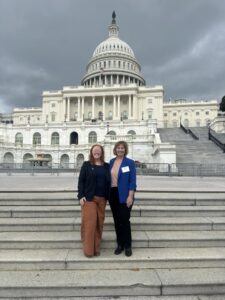
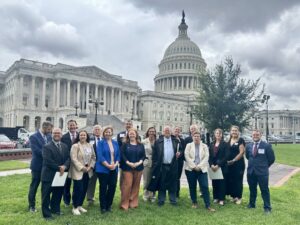
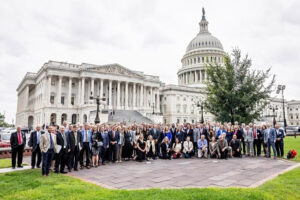
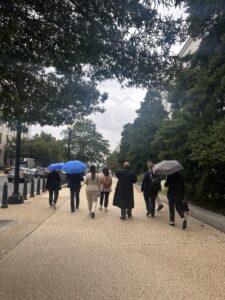
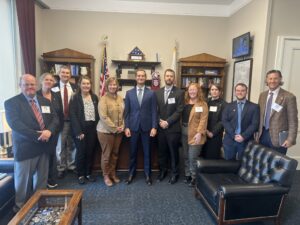
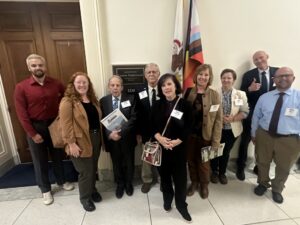
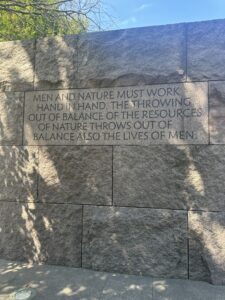
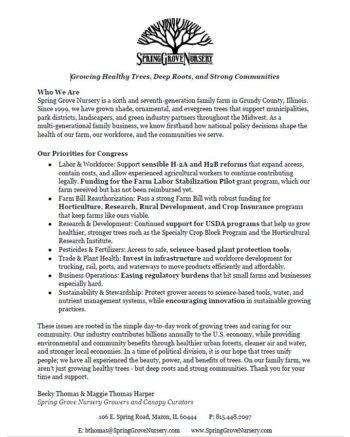
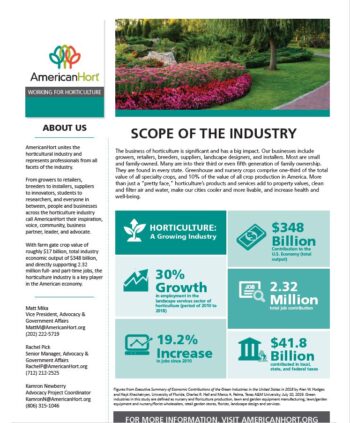
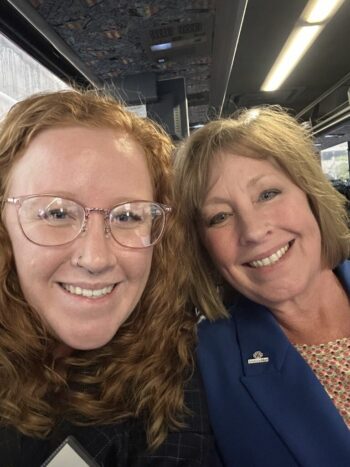
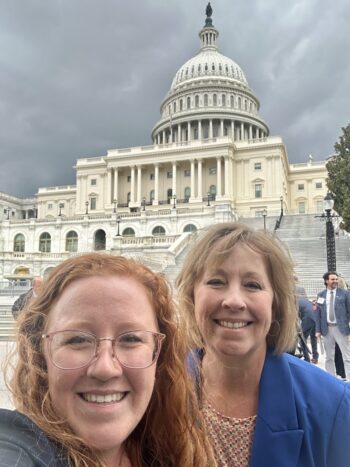
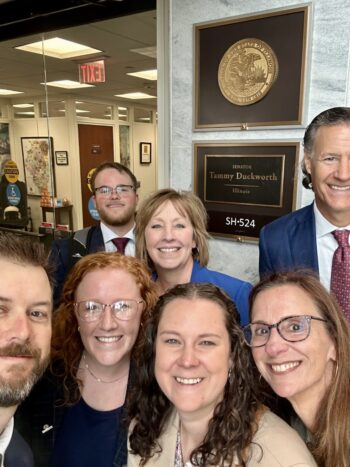
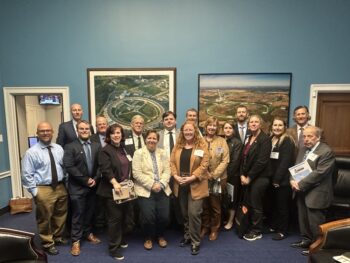
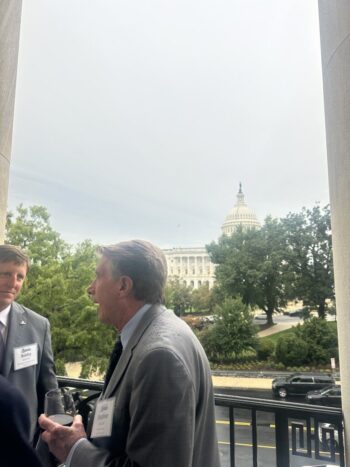
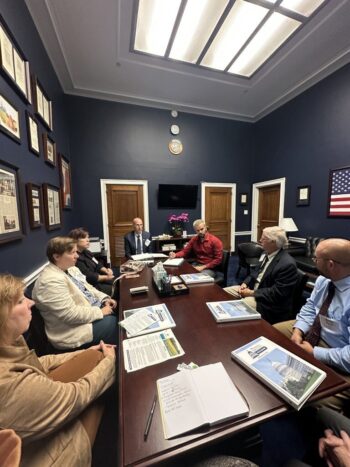
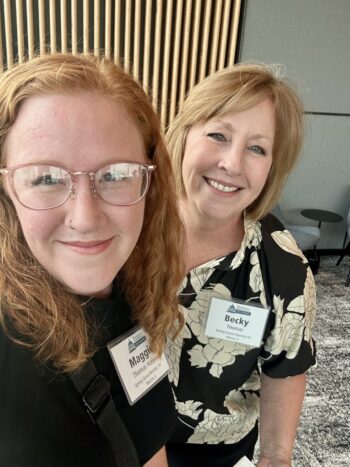
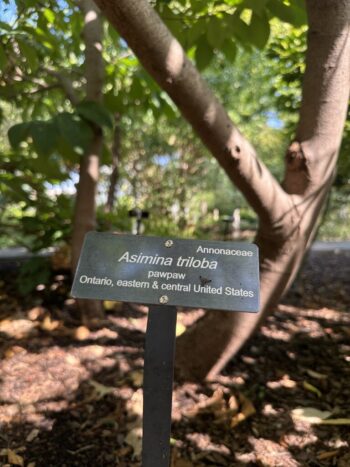
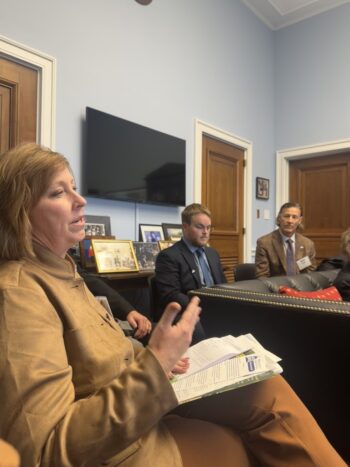
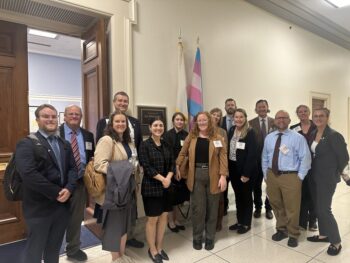
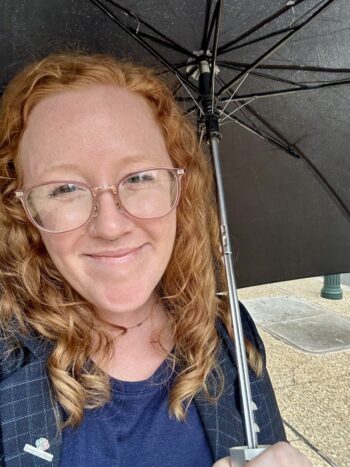
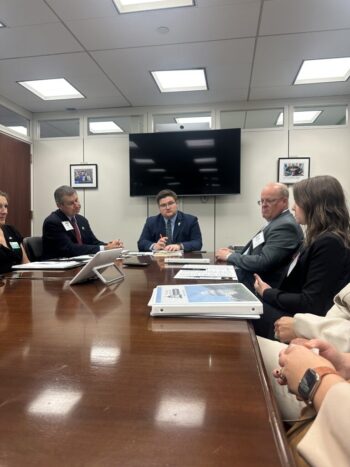
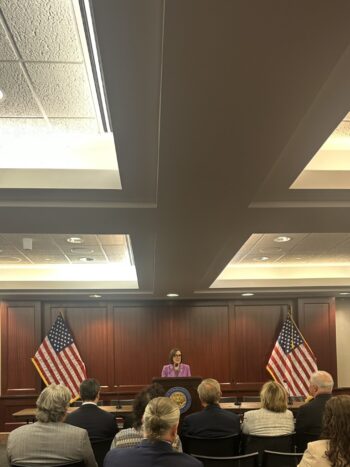
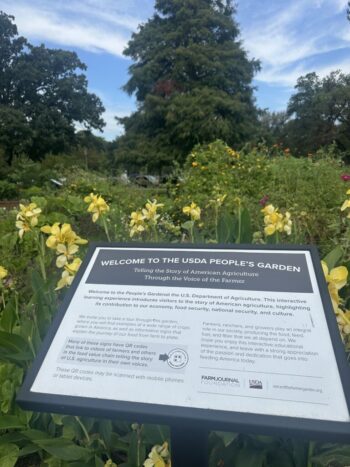
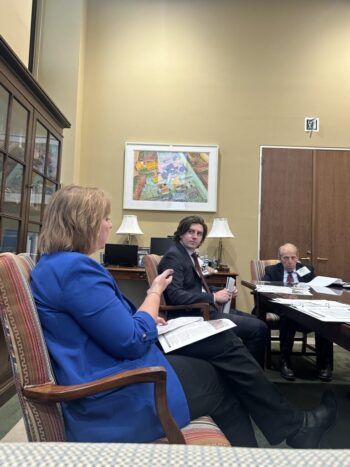
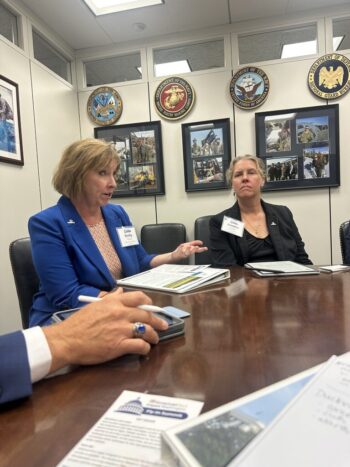
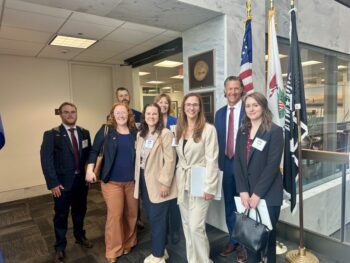
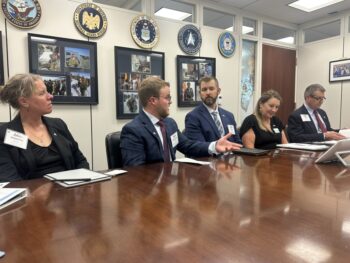
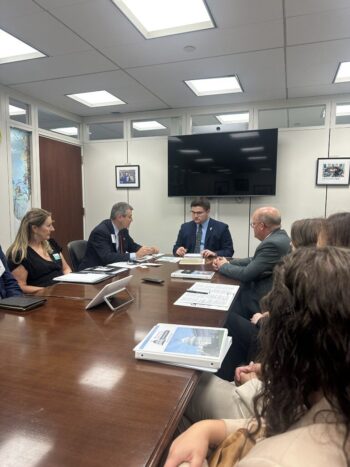
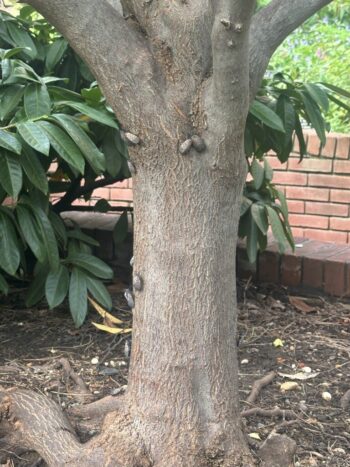
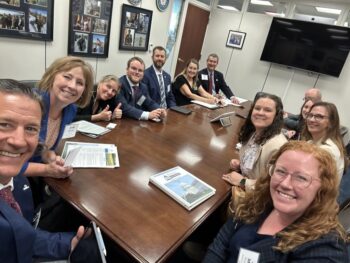
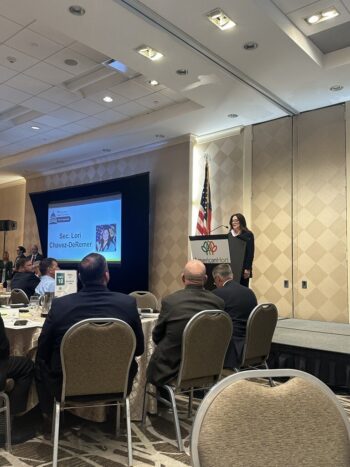
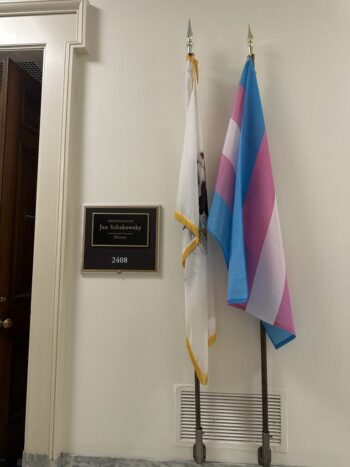
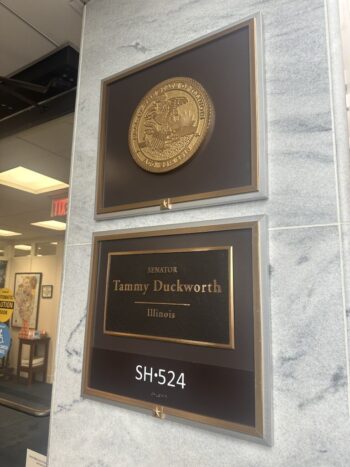
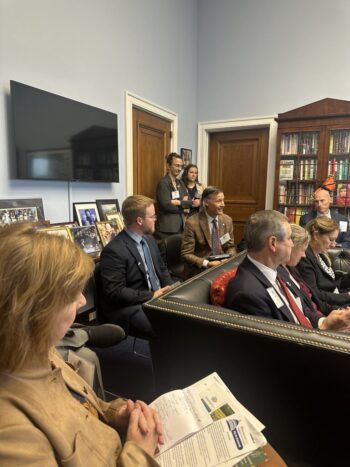
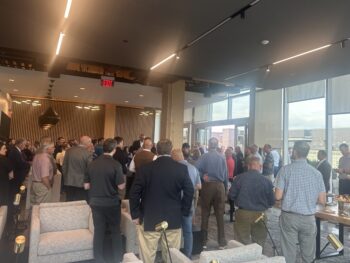
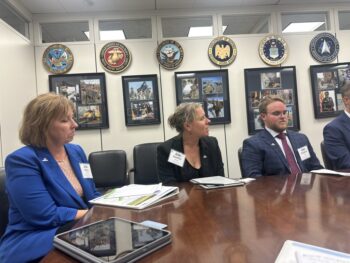
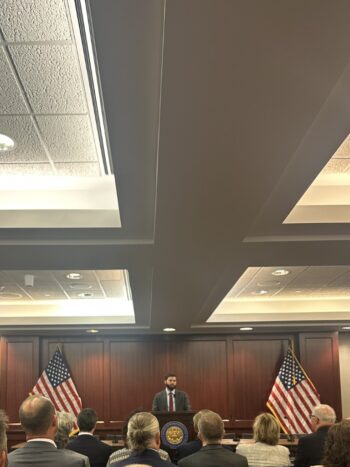
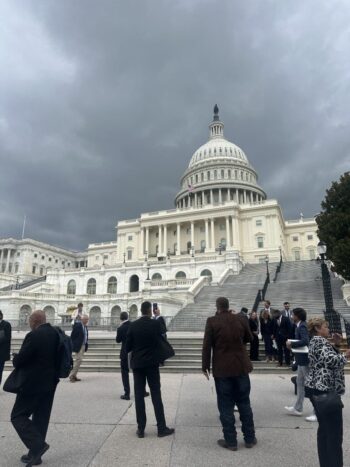
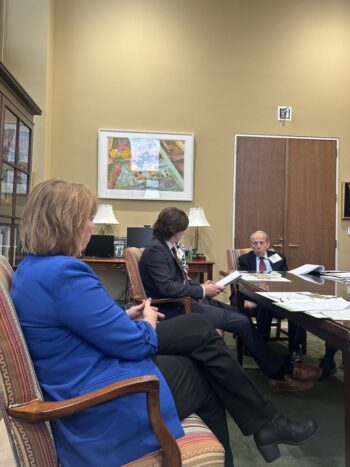
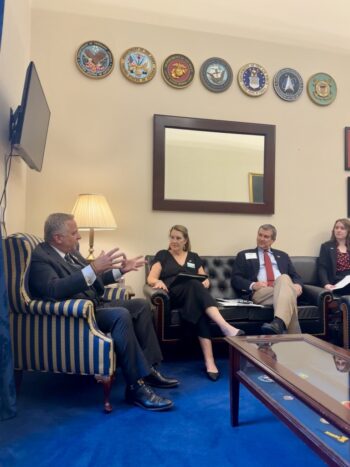
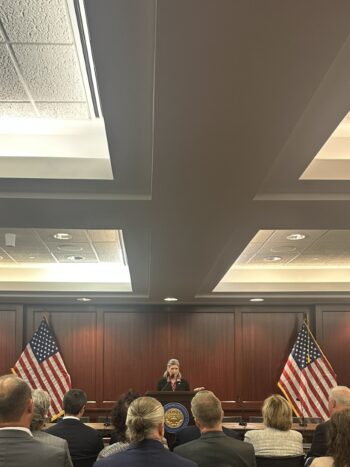
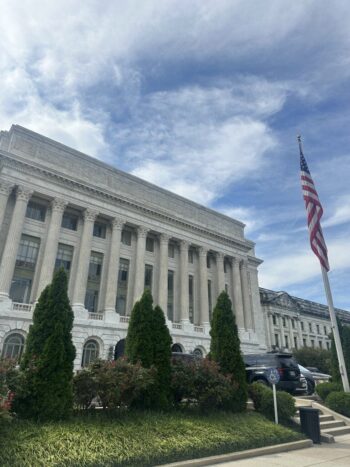
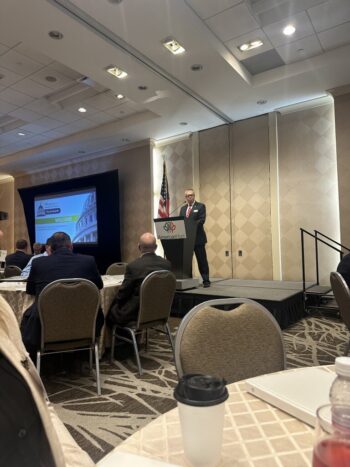
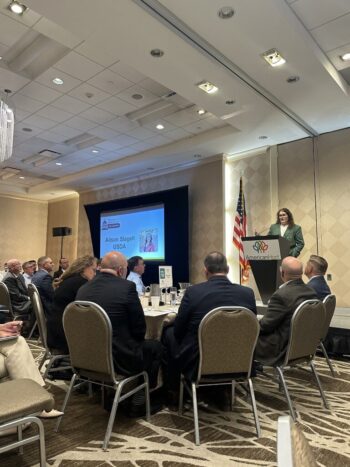
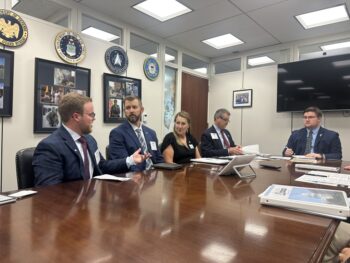
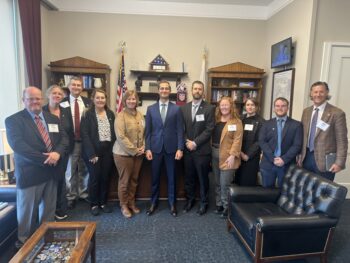
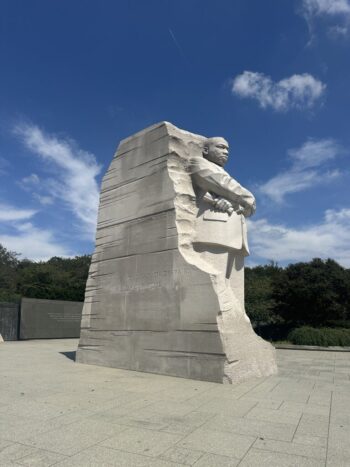
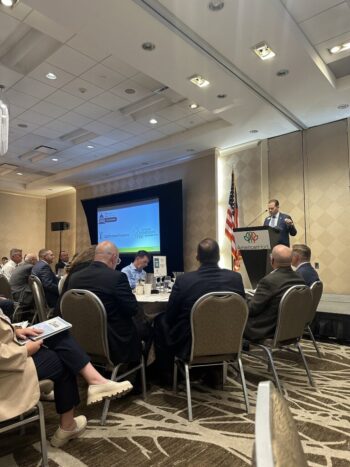
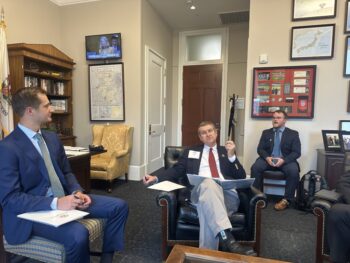
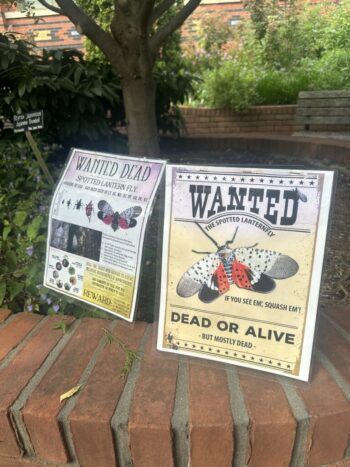


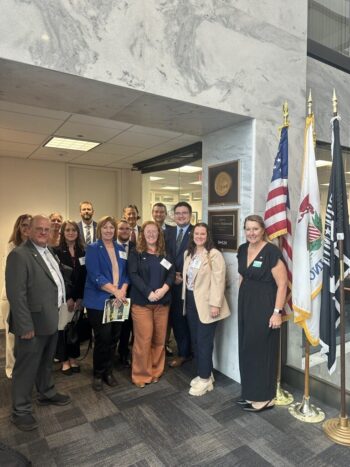
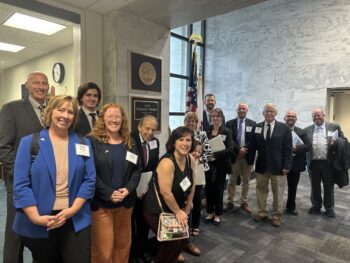
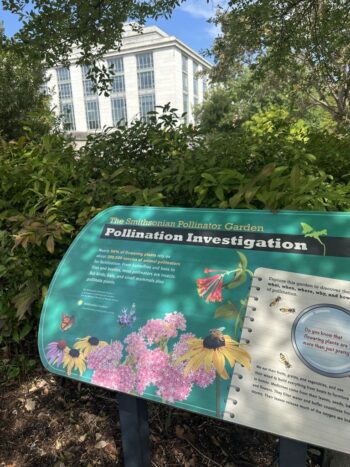
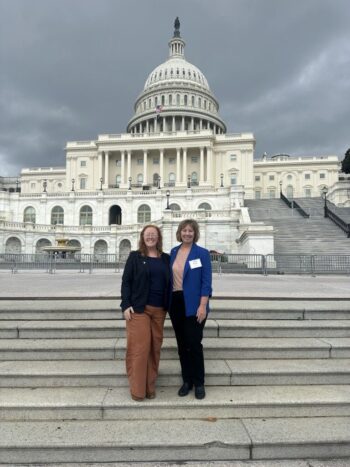
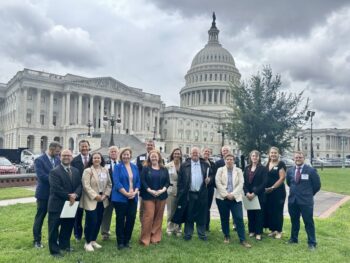
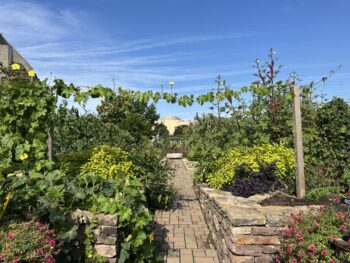
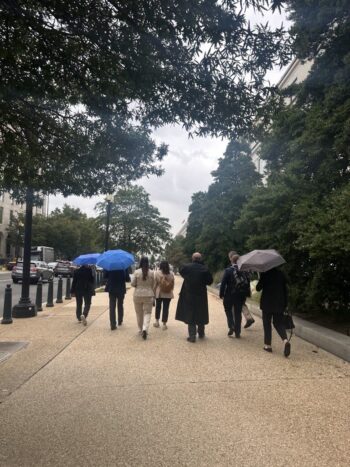


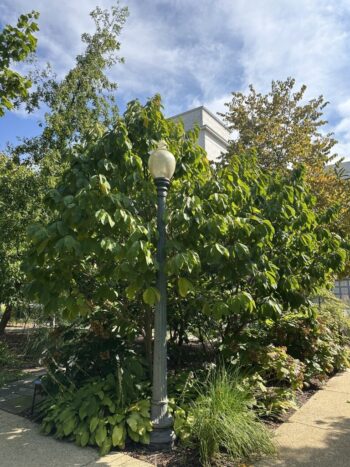
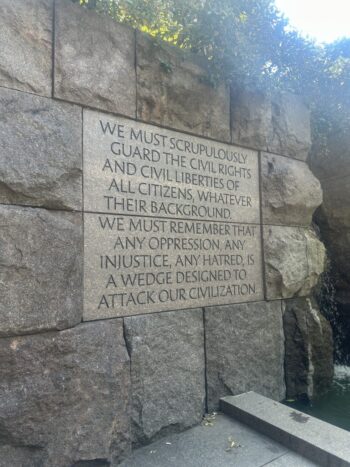
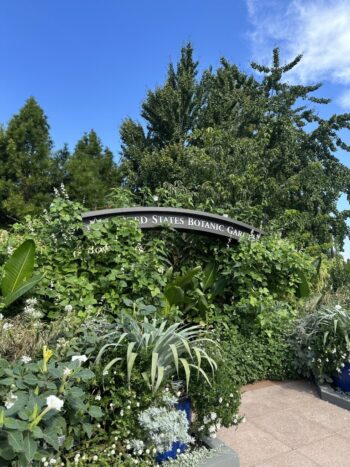

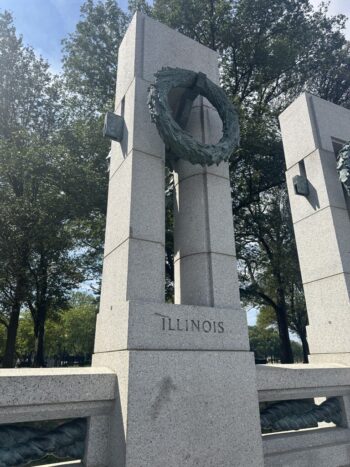
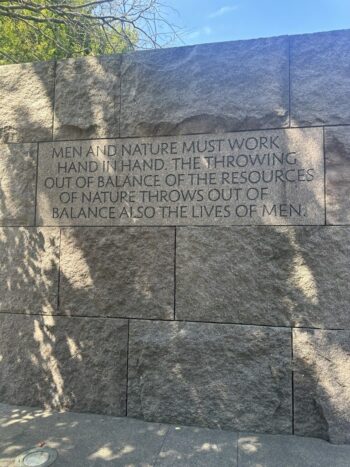
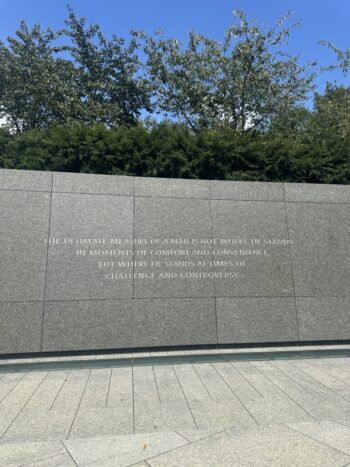
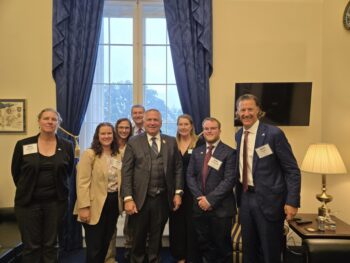
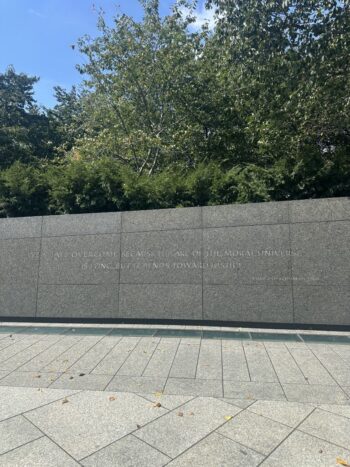
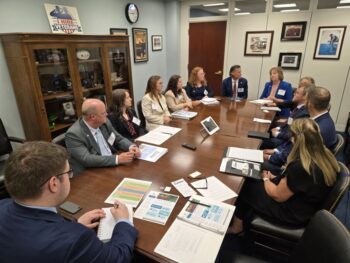
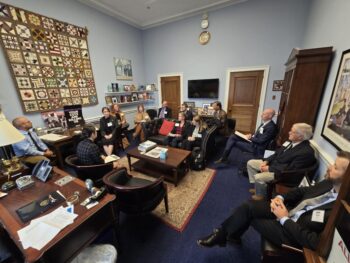
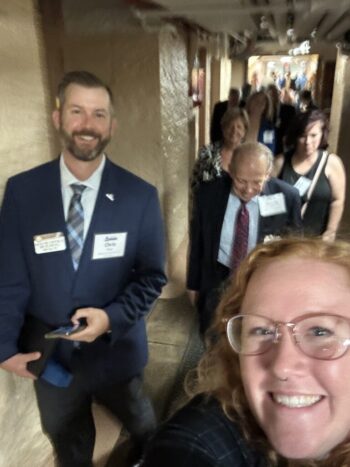
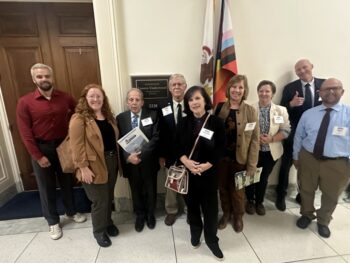
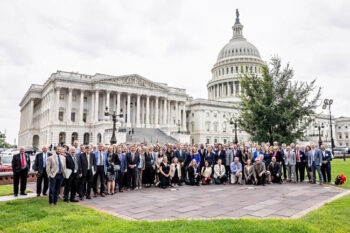
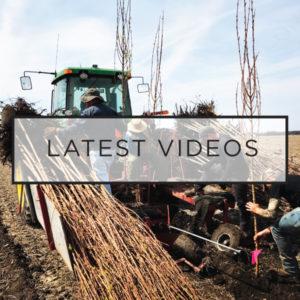



Leave a Reply